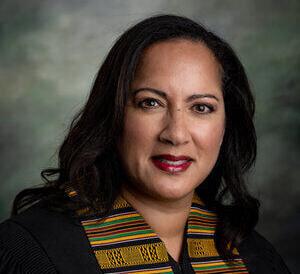
Of all the ironies arising from the recall drive against New Orleans Mayor LaToya Cantrell, one stands out: When all is said and done, the only elected official who may be held to account is a judge who signed the petition — and then presided over a lawsuit aimed at reducing the number of signatures needed on that petition.
Judge Jennifer Medley, of Orleans Parish Civil District Court, signed the recall petition on Dec. 19. That alone should raise eyebrows at the Louisiana Judiciary Commission, which serves as the disciplinary arm of the state Supreme Court.
Ten weeks after she signed the petition, Medley failed to disclose that fact to litigants and attorneys when she presided over a lawsuit aimed at lowering the number of voter signatures (including hers) needed to force a referendum on Cantrell. That raises larger ethical questions for all Louisiana judges.
Had Medley made that disclosure, defense attorneys representing Secretary of State Kyle Ardoin and Orleans Parish Voter Registrar Sandra Wilson no doubt would have sought to recuse her from the case. Medley could have obviated the issue by recusing herself. At a minimum, she should have disclosed her signature. Having failed to do either, she has raised serious questions — and doubts — about the fairness and impartiality of the Louisiana judicial system.
When Medley’s petition signature came to light, attorneys who represent judges in such matters dutifully served up a lawyerly equivocation: “It’s not illegal.”
In the strictest sense, that is correct. Medley signing the recall petition did not violate any specific statute.
This is not a matter of legal-versus-illegal, however. It’s a matter of ethical-versus-unethical — and appearances. Judges are ethically bound to avoid even the appearance of bias or partiality. On that metric, Medley has a problem.
The Code of Judicial Conduct sets forth the do’s and don’ts of judges’ behavior. Canon 1 states, “A judge shall uphold the integrity and independence of the judiciary.”
Canon 7 states, “A judge or judicial candidate shall refrain from inappropriate political and campaign activity.” It further explains that judges shall not “publicly endorse or publicly oppose” candidates for office.
Paragraph F of Canon 7 gets to the bottom line: “A judge shall not engage in any other partisan political activity except on behalf of measures to improve the law, the legal system or the administration of justice….”
Attorneys and even judges may parse the canons’ fine print, but such dissembling misses the big picture. The code exists to secure public confidence in the judicial system by requiring judges to be fair and impartial. Our democracy rests on such confidence.
So here are some questions that the Judiciary Commission and, ultimately, the Louisiana Supreme Court need to answer: Can judges sign recall petitions? If so, shouldn’t they disclose their signatures and/or recuse themselves from cases involving the same petitions? If judges should not sign recall petitions, what happens now to the case Medley heard — and to Medley herself?
If recalls become more commonplace in Louisiana — a distinct possibility in this age of social media — the answers to those questions will become increasingly important.
Clancy DuBos is political editor of Gambit weekly. He can be reached at clancy@gambitweekly.com.

Leave a Reply